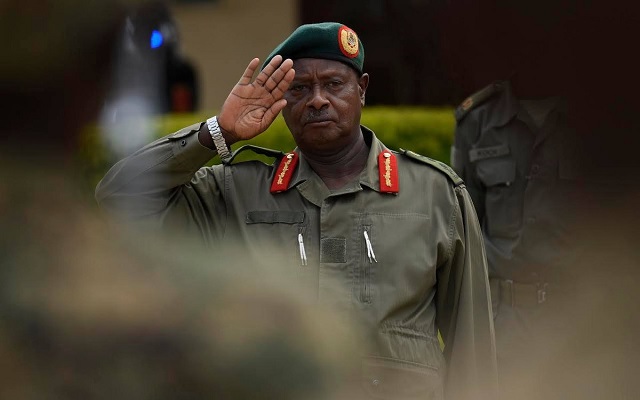
Bobi Wine, like Kizza Besigye, is wrong to see Museveni as the problem and his removal as the solution
COMMENT | NNANDA KIZITO SSERUWAGI | In this article, I argue that the lack of a developed socio-political infrastructure to uphold the bureaucracy of a modern state exposes Uganda to certain structural problems which cannot be solved fundamentally by any change of government. I then suggest that we can make this dysfunction serve us.
Modern states evolve out of a process by which politics is gradually emancipated from society and configured into progressively impersonal, autonomous political institutions. The key to such institutionalization is not just about the exercise of the monopoly of legitimate violence as enunciated by Max Weber (which might be easier for “President Muhoozi” than “President Kyagulanyi” to attain), rather, it is about the successful establishment of a truly independent bureaucracy which neither “President Muhoozi” nor “President Kyagulanyi” can reasonably achieve.
Contrary to popular perceptions that percolate through our social discourse, most of Uganda’s problems are not problems caused or perpetrated by Museveni or whichever incumbent president we might have, but are problems of “underdevelopment”. They exist by virtue of our current level of development as a society and not because of any person acting as President. This is where I think Bobi Wine and Dr. Kizza Besigye go wrong; when they articulate Uganda’s problem to be President Museveni individually and hold a singular will to power informed only by the intention to remove the current president as a panacea to heal all our problems as a country.
For anyone aspiring to govern this country after President Museveni, whether Bobi Wine or Gen. Muhoozi to claim that they intend to solve most of the disorder that is Uganda, immediately invites them to end patrimonialism or patronage- that is, to completely break from the notion that as wielders of political power, they possess any legitimate claim on the resources they administer. I submit that neither of them would do this because to do so would mean losing the very power they badly want to exercise. Administering Uganda’s resources as his personal wealth is partly how Gen. Museveni has managed to hold power for this long and doing otherwise would spell his fall.
At Uganda’s current stage of development, it is impossible to bring functional distinction between the public and private spheres. For this reason, the opposition in Uganda rightfully, but also hypocritically and maybe also, naively criticise Museveni’s government for corruption. But like President Museveni, if they too acquired power, they would sooner than later govern exactly as he has, lest they lose power as quickly as some of his predecessors.
Therefore, the challenge for the next president of Uganda is not to flirt with the popular and pretentious narrative of attempting to govern Uganda as and on the principles of a functional state and modern bureaucracy. The true challenge is finding workable means to instrumentalise the advantage of Uganda’s political-economic childhood to steer it steadily as a parent would guide a child, to achieve economic development. This has been Museveni’s greatest miss in his close to half a century of presidency.
It cannot be blamed on the current, past or next government that our country fails to meet the Eurocentric standards and notions of a modern democracy. However, to show that we could profitably exploit the current backwardness of our country and be industrious and productive in our “failing” as construed by Westernised metrics of measuring a modern state is not difficult.
The unexploited advantage of our current underdeveloped statehood is the leverage an incumbent President has over taking fundamental decisions in the country’s interest for example on mega investments in industrial, infrastructure or educational projects with limited let or hindrance from the absent or where present, weak democratic bureaucracy.
We are not dysfunctional because we blatantly disregard the rule of law expected of a modern democracy. It is actually the very attempt to follow the procedural propriety of an advanced country that grinds our development efforts to a stalemate. Governing Uganda like Switzerland or the USA which the NRM government and its opposition parties alike promise to do is like driving a Mercedes Benz GLS 450 on the chassis of a Toyota Corolla. It won’t work.
*****

Nnanda Kizito Sseruwagi is a lawyer doing a clerkship at Kampala Associated Advocates
 The Independent Uganda: You get the Truth we Pay the Price
The Independent Uganda: You get the Truth we Pay the Price




This opinion is majorly empty for it largely undermines the role leadership plays in impacting the progress of the countries, yet leadership is among the key factors that contribute to the development development of a country. Examples in Sub Saharan Africa where some parents have made some significant contribution are many-Ivory Coast, Botswana, Ethiopia and even Rwanda and Kenya. Bobi and Besigye don’t argue that removing museveni is the solution, but a solution i.e one of the major solutions, which indeed it is. Just for argument sake, because museveni has been in power for long, allocations of economic opportunities and resources have mainly concentrated and enjoyed by the same people who have accumulated a lot of money and many are now very wasteful. If another leader takes over, access to corruption and resources can be enjoyed by different group, which can lead redistribution of resources and to an extent contribute to the development of the country considering that even Museveni’s group that has accumulated a lot will not be done away with. You come up as naive but I hope this simple example makes some sense to you but if it doesn’t, at some day will appreciate it.